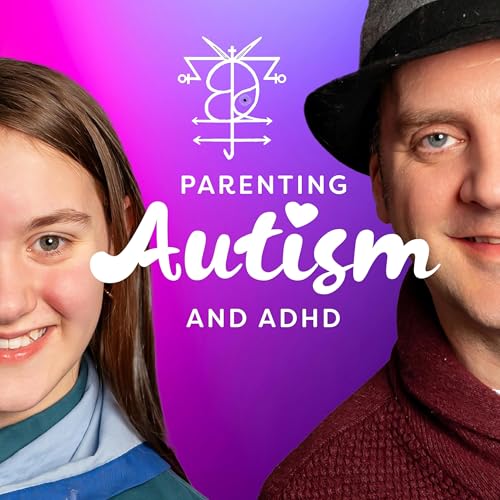This episode is going to be a little different because I co**ed up. I forgot to press record at the start and instead of cutting it out, we've kept it in, because that moment is exactly what today's conversation is about. It's such a pleasure for me to welcome Kathryn Lovewell from kind mind Academy, and we're talking about anxiety, the inner critic and self-compassion. Whether you are an adult or a child, it´s important to think about how we speak to ourselves when things go wrong. So, what you're about to hear isn't polished, it's real, and it perfectly demonstrates what Kathryn teaches. EPISODE REVEALS Booster and Crusher give families a shared language for inner voices: Booster is the warm, encouraging voice that builds confidence; Crusher is the harsh critic that fuels shame and shutdown. You can turn Booster up and turn Crusher down. Parents’ own self-talk and reactions model either Booster or Crusher for their kids, making family-wide self-compassion language a powerful way to build resilience together. Kathryn’s three-step “Booster Break” - name the struggle, remember common humanity, respond with kindness - is a fast, practical tool for calming the nervous system in tough moments. BEST MOMENTS "If we listen to Crusher long enough, which is my invention of my inner critic, it can lead to depression, anxiety and really dark places." "We shouldn't need to justify who we are and how we show up as humans. What we do need to do is make sure that when we go to bed, we like the person in the mirror." ABOUT THE GUESTS Kathryn Lovewell is the founder of Kind Mind Academy, creator of The Booster Way®, and a Senior Certified Mindful Self-Compassion teacher. She specialises in helping children, parents, and educators tame the inner critic and grow self-compassion, through her books The Little Book of Self-Compassion and The Voices in My Head! and her family-focused Booster tools. A former teacher who has worked across schools, prisons, and community settings in the UK, USA, and Australia, Kathryn now offers compassion resilience coaching, runs programmes for families and women, and speaks internationally on emotional wellbeing. www.KindMindAcademy.com www.TheBoosterWay.com TheBoosterWayCommunity.com Curious to know how kind you are to yourself? Take a quick Self Kindness Quiz online and discover for yourself - www.SelfKindnessQuiz.com Connect with Kathryn: linkedin.com/in/kathrynlovewell www.YouTube.com/KindMindAcademy https://www.instagram.com/KathrynLovewell https://www.instagram.com/KindMindAcademy https://www.instagram.com/TheBoosterWay “The voices in my head” book - https://amzn.eu/d/g6laOjP Eva’s channel - https://www.youtube.com/shorts/-sb6ecqBJk4 https://www.youtube.com/@InspireWithUsYT RESOURCES Cliff´s book “What To Do When Your Child Shuts Down” - https://amzn.eu/d/3trk6pw CONTACT ME Instagram: @cliff_kilmister08 Facebook: https://www.facebook.com/cliff.kilmister X - @KilmisterCliff YouTube - https://www.youtube.com/@ParentingAutismandADHD HOST BIO Cliff Kilmister is a dedicated parent, advocate, and cat whisperer with firsthand experience raising a child with autism, ADHD, and Sensory Processing Disorder (SPD). Having navigated the challenges of school refusal, meltdowns, and sensory sensitivities, Cliff brings an empathetic, real-world perspective to the podcast. When he's not helping his child thrive, he’s dodging the evil stares of his three cats, who are plotting to take over the world (fortunately, they still haven’t figured out how to use the tin opener). Cliff offers practical advice, expert insights, and personal stories to help families facing similar struggles. Cliff is focused on connecting with professionals and networks to raise awareness about the growing need for the education system to adapt to the increasing neurodiverse population. Join the community on Patreon to share experiences, access exclusive content, and work together for change!
Voir plus
Voir moins
 Feb 4 20261 h et 2 min
Feb 4 20261 h et 2 min 52 min
52 min Jan 21 20261 h et 10 min
Jan 21 20261 h et 10 min Jan 14 20261 h
Jan 14 20261 h 29 min
29 min Dec 31 202522 min
Dec 31 202522 min 46 min
46 min 54 min
54 min
